Roberth Strand
GitOps: The past, present and future
#1about 4 minutes
The evolution from traditional ops to CI/CD pipelines
Traditional manual server management evolved into pipeline-based automation, which set the stage for but is not the same as GitOps.
#2about 4 minutes
Defining GitOps and the OpenGitOps project
GitOps was defined by Weaveworks as "operations by pull request" and is now guided by the vendor-neutral OpenGitOps project under the CNCF.
#3about 7 minutes
Understanding the four core principles of GitOps
GitOps is built on four principles: the system state must be declarative, versioned and immutable, pulled automatically by agents, and continuously reconciled.
#4about 8 minutes
Key benefits of adopting a GitOps model
Adopting GitOps improves deployment speed, simplifies security, provides inherent documentation, uses familiar developer tools, and is driven by a flexible open-source community.
#5about 4 minutes
Overview of the GitOps workflow and popular tools
The workflow involves updating a declarative manifest in Git, which is then pulled and applied by tools like Flux CD, Argo CD, Rancher Fleet, or Jenkins X.
#6about 2 minutes
Answering common questions about implementing GitOps
GitOps is not strictly limited to Git or Kubernetes, and while it may not fit every single scenario, its principles are broadly applicable.
#7about 3 minutes
The future of GitOps and how to get involved
The future of GitOps involves more community standards and wider technology adoption, and you can get involved by joining the CNCF working group or contributing to tools.
#8about 2 minutes
Q&A: Choosing between Helm and Kustomize for applications
The choice between Helm and Kustomize depends on the specific use case, as Helm is useful for pre-packaged charts while Kustomize offers simpler control for custom deployments.
#9about 2 minutes
Q&A: Advocating for GitOps adoption on your team
To advocate for GitOps, use white papers for stakeholders and conduct practical demos for technical teams to show how easily the system works.
#10about 4 minutes
Q&A: Applying GitOps principles without Kubernetes
While easier with Kubernetes, GitOps principles can be applied elsewhere by creating custom processes with software agents running in containers or on servers.
#11about 5 minutes
Q&A: GitOps, CI tools, and security management
GitOps complements rather than replaces CI tools like Jenkins for build processes, and security is managed by externalizing secrets with tools like HashiCorp Vault or SOPS.
Related jobs
Jobs that call for the skills explored in this talk.
ROSEN Technology and Research Center GmbH
Osnabrück, Germany
Senior
TypeScript
React
+3
VECTOR Informatik
Stuttgart, Germany
Senior
Kubernetes
Terraform
+1
Matching moments
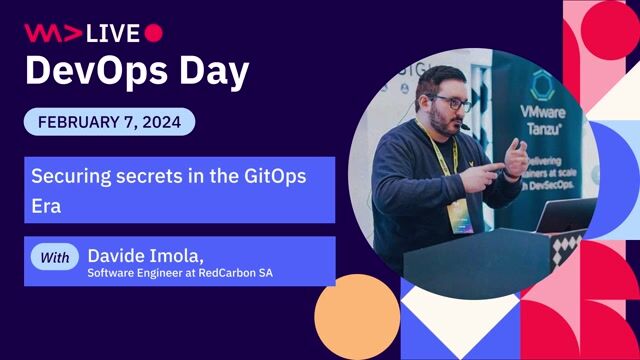
07:32 MIN
Understanding the fundamentals and benefits of GitOps
Securing secrets in the GitOps Era
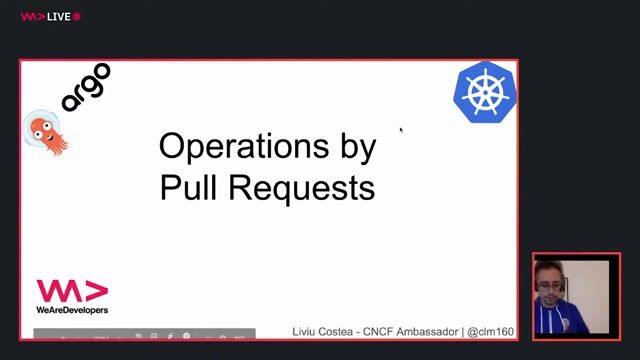
03:33 MIN
Introduction to GitOps and the talk agenda
Get ready for operations by pull requests
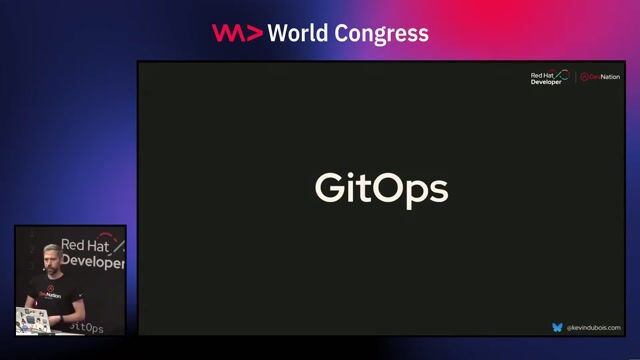
01:11 MIN
Understanding GitOps for declarative application delivery
Next-gen CI/CD with Gitops and Progressive Delivery
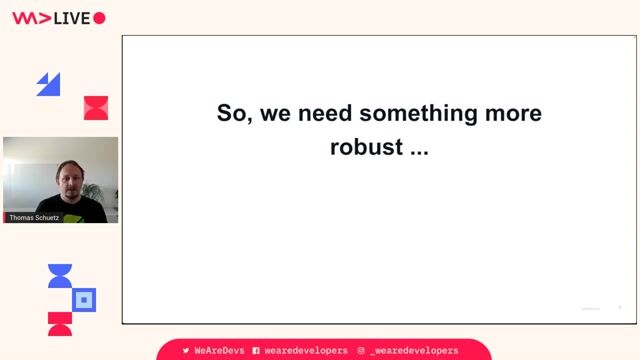
13:40 MIN
Understanding GitOps principles and the reconciliation loop
Practical tips and tricks for CI/CD success
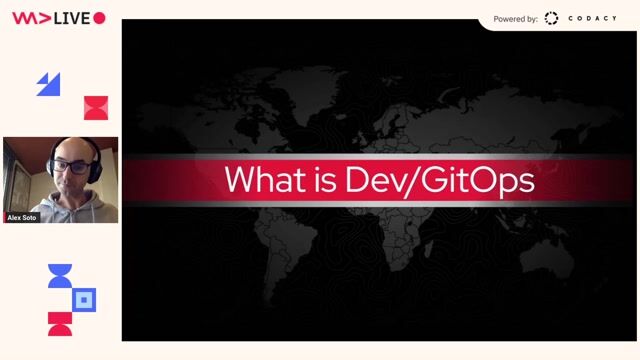
07:50 MIN
How GitOps streamlines the application delivery process
Securing Secrets in the GitOps era
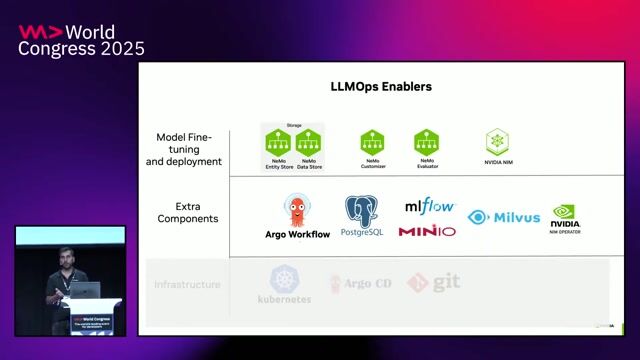
03:20 MIN
Implementing a GitOps approach for end-to-end LLMOps
LLMOps-driven fine-tuning, evaluation, and inference with NVIDIA NIM & NeMo Microservices

05:20 MIN
Understanding the core principles of GitOps
How to GitOps your cluster with Flux

04:22 MIN
Understanding the four core principles of GitOps
A Practitioners Guide to GitOps - Introduction, Principles and Implementation
Featured Partners
Related Videos
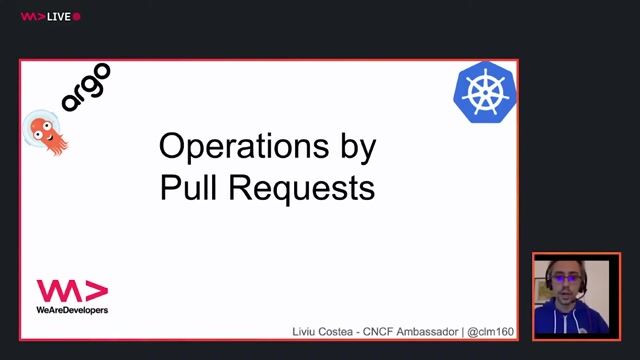 50:02
50:02Get ready for operations by pull requests
Liviu Costea
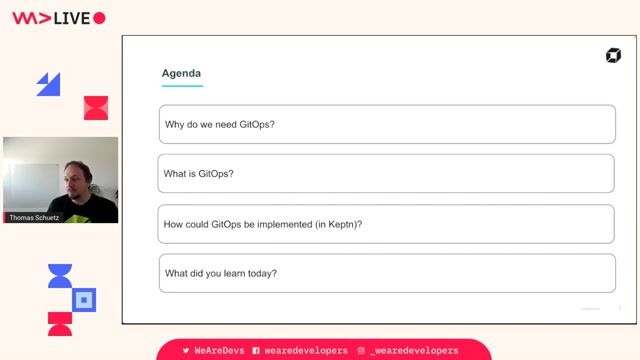 45:58
45:58A Practitioners Guide to GitOps - Introduction, Principles and Implementation
Thomas Schütz
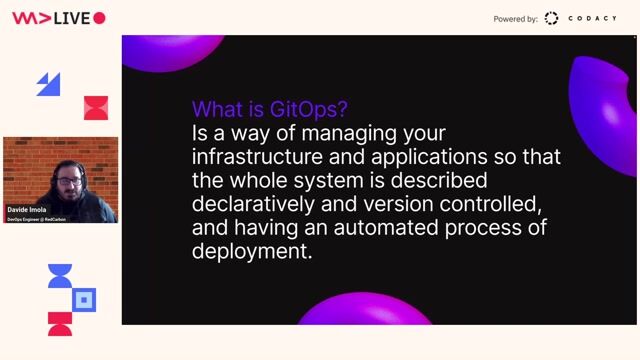 58:44
58:44How to GitOps your cluster with Flux
Davide Imola
 29:49
29:49GitOps for the people
Lian Li
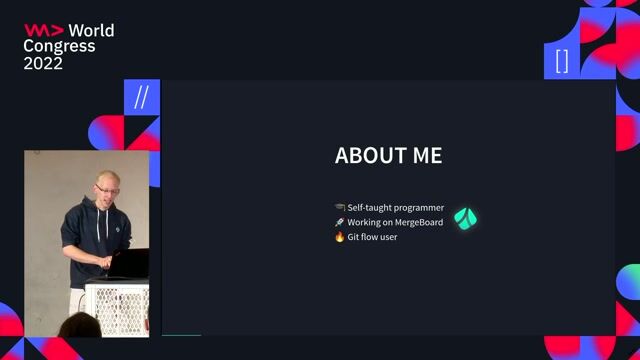 24:19
24:19Git for Code Reviews
Johannes Haux
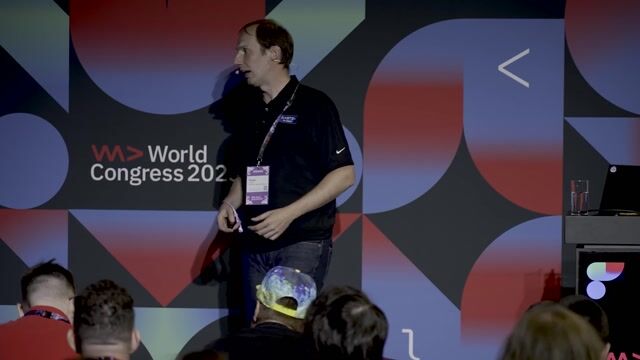 25:24
25:24Integrating backups into your GitOps Pipeline
Florian Trieloff
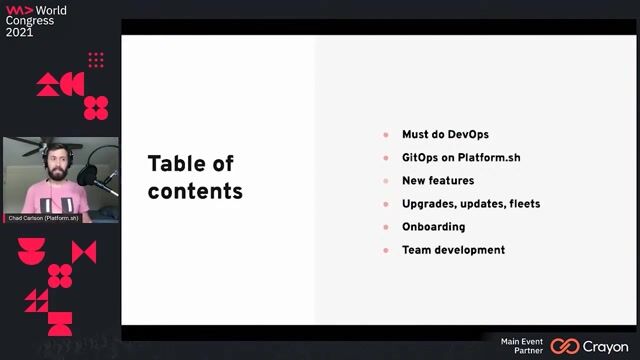 36:09
36:09GitOps keeps focus on apps, not on infrastructure
Chad Carlson
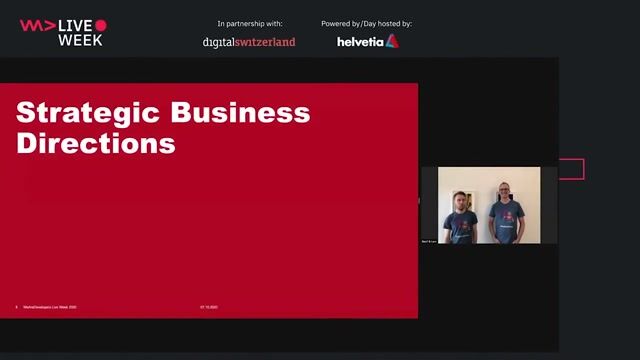 42:29
42:29Improving Developer Happiness with GitOps
Lars Hesel Christensen & Basil Brunner
Related Articles
View all articles



From learning to earning
Jobs that call for the skills explored in this talk.

NatWest Group
Manchester, United Kingdom
DevOps
Gitlab
Grafana
Terraform
Kubernetes
+2

NatWest Group
Edinburgh, United Kingdom
DevOps
Gitlab
Grafana
Terraform
Kubernetes
+2


AllatNet Recruiting GmbH & Co. KG
Erlangen, Germany
Go
Bash
Azure
DevOps
Python
+8


E.ON
Berlin, Germany
Remote
Azure
DevOps
Docker
Terraform
+2


CONTARGO
Duisburg, Germany
Remote
Scrum
DevOps
Gitlab
Puppet
+4

Dataport
Altenholz, Germany
DevOps
Openshift
Agile Methodologies
Continuous Integration
Configuration Management
+1